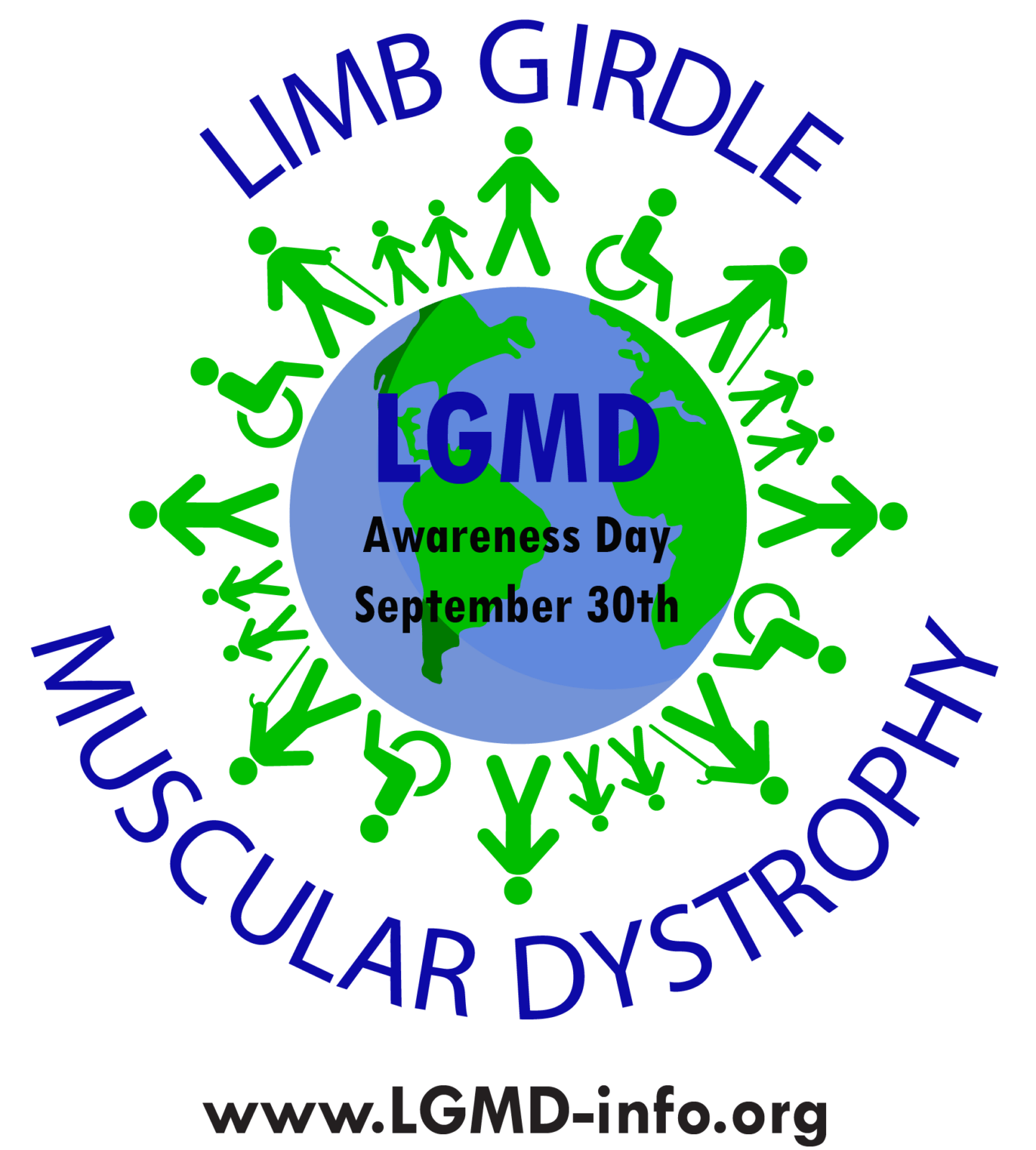
September 30th, is LGMD (Limb Girdle Muscular Dystrophy) Awareness Day. Before LGMD was mentioned to me by my doctor who tested and gave me my diagnosis of it, I had never heard of it. To me, MD is something that only affects boys, since the majority of MD patients are those with Duchenne's which only affects boys, and is usually diagnosed in infants or toddlers who are not able to walk at all. I have learned that there are several forms of MD. When people discover that I have MD it is something that they have heard about, but when they hear the story about how I got my diagnosis, it surprises them. When we learned about LGMD, and my family read all of the symptoms, it was like reading my whole life, as I have had all of them. Despite having textbook LGMD symptoms, my diagnosis was missed for 24 years, and lack of awareness is a big reason why.
Unlike other forms of MD like Becker's and Duchenne's that only affect boys, LGMD affects both girls and boys equally. Most doctors when they think of MD, they automatically think of boys with Duchenne's, and if they do think about girls with MD it is girls who are very floppy as baby's. Although today doctors are more aware of LGMD and are referring patients, including girls, to get evaluated and tested for it, this has only been happening in the last few years. When I was younger LGMD was something nobody knew of or they knew very little about it, including doctors, and although that is still somewhat true, it is a lot better than when I was younger.
Due to lack of awareness about LGMD my diagnosis was delayed for many many years, and the result of that was a lot of challenges. I received chemotherapy treatment and very powerful drugs because I was misdiagnosed as a rheumatological patient. I was given intense PT that could have caused more harm to me. I had challenges at school and after school activities because of my inability to do keep up physically, and I was even asked to leave various activities because of my challenges, and couldn't go to certain places like theme parks. Today I can go more places since I have an electric-powered wheelchair. If there had been more awareness when I was younger I would have been able to receive a diagnosis much sooner. As a result I wouldn't have taken powerful drugs I never needed, wouldn't have done intense PT, and would have received services and not done certain things. I would have gotten a wheelchair sooner so I could go to more places where lots of walking was involved. With more awareness about LGMD children and even adults with LGMD can get an accurate diagnosis, and with that be able to get all the tools and resources that are needed to live a happy and productive life with LGMD.
But all of this has meaning because I know God has a plan for me. I absolutely waste no time on negative energy.

